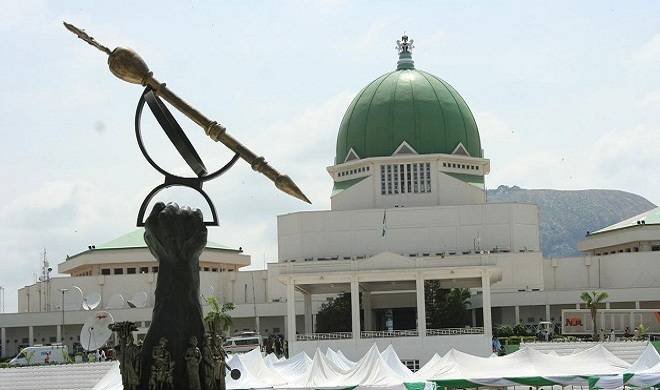Recurrent happenings in Nigerian leadership succession
When he stepped off the Elder Dempster Lines passenger ship at the Apapa docks in December 1965, little did the then Lt. Colonel Yakubu (Jack) Gowon fresh from attending a course in the United Kingdom know that in seven months he will come to be Nigeria’s Head of State and go on to rule from […]

When he stepped off the Elder Dempster Lines passenger ship at the Apapa docks in December 1965, little did the then Lt. Colonel Yakubu (Jack) Gowon fresh from attending a course in the United Kingdom know that in seven months he will come to be Nigeria’s Head of State and go on to rule from 1966 to 1975. He thus became the first among Nigerian leaders who emerged when they and Nigerians least expected them to.
Following Gowon was General Murtala Mohammed. According to late General Joseph Nanven Garba in his book Diplomatic Soldiering, General Mohammed was the choice of his colleagues to take over from Gowon when they were planning the latter’s ouster. It was however only after they had successfully executed the coup on July 1975 that they met him with the request. Even though he knew about their planning and even supported it, he reportedly never considered himself for the position of Head of State.
Then came General Olusegun Obasanjo. After he narrowly escaped being killed in the February 1976 coup that claimed the lives of General Mohammed and his Aide de Camp and others, General Olusegun Obasanjo as Chief of Staff Supreme Headquarters and the highest ranking officer after Mohammed, was the shoo in for the position. But as he himself later said in his maiden broadcast, he took on the position ‘’against my personal wish and desire’’. As it came to light in publications and accounts of some of the dramatis personae of the tragic happenings of those days, General Obasanjo was indeed prevailed upon to take over the mantle of leadership by his colleagues.
Shehu Usman Aliyu Shagari, the next person to rule Nigeria after military handed over power to civilians in 1979, wanted actually to be a Senator. He did not consider himself above the likes of Yusuf Maitama Sule, Adamu Ciroma and Joseph Sarwuan Tarka all of who were considered as front runners. But in the ensuing stalemate the faithful of their National Party of Nigeria (NPN) picked on Shagari who went on to win the elections and become the President of Nigeria.
After the ouster of Shehu Shagari in the New Year’s Day coup of 1984, the military top brass decided on Major General Muhammadu Buhari, then the General Officer Commanding, (GOC) of the third Armoured Division based in Jos the capital of Plateau state as the new leader. He never sought the job even though he was not sad to see the civilians go.
General Buhari was overthrown by forces loyal to General Ibrahim Badamasi Babangida who sought and got the job. But his convoluted political succession programme pissed every one off and in the end when he could not extricate himself from the political knots he tied himself with it was the unlikely Earnest Shonekan who was appointed to become the Head of the Interim government to replace Babangida. Again Shonekan did not seek the job.
And when General Sani Abacha shoved aside the weak Interim Government of Shonekan and embarked on his crises filled rule ending in his demise, again it was General Obasanjo who was sprung up from prison in Yola the Adamawa state capital serving a life sentence to come and become the president of the new civilian dispensation. Again as in the previous occasion when he was military ruler, Obasanjo neither thought nor sought the position.
When Obasanjo’s third term caper was defeated and he was left with no alternative but to allow a succession, he turned to the unlikely pairing of Umaru Musa Yaradua governor of Katsina and Goodluck Jonathan. Unlikely because Yaradua due to his dodgy health situation and unassuming character never considered himself for the job. Jonathan too as deputy governor in Bayelsa to Alamiesegha was unremarkable throughout his deputyship. Again both never sought the position.
Enter President Buhari. He had sought the position on three occasions only to come up short. And having closed up shop and ready to quit, he was persuaded by a phalanx of political grandees across the political divides in the country to come and pitch for the job. And so having decided not seek the position of president after three unsuccessful tries, he got it on the fourth through the efforts of others majorly. Just like in his first coming during the military he was also chosen this time too.
Now we are on the road to 2023 and the anxieties are beginning to build up as to how the succession to President Buhari will pan out. Several names are being bandied about. There are also issues of zoning or rotation and both the southwest and south east are laying fierce claims to the position. President Buhari himself has remained non-committal. He even hinted darkly that he will stop those he referred as ‘’desperate politicians’’ in the 2023 race. Apparently this is a shot across the bow of a certain governor whose desire for the job is the worst kept political secret in the country. It could also be aimed at you know who.
But most Nigerians are not so sanguine about those currently angling to succeed president Buhari. And the anxiety is compounded by the hanging question; if not those mentioned, then who? From the history of recurrent happenings in leadership succession in Nigeria, perhaps once again it may well be another dark horse to emerge?
